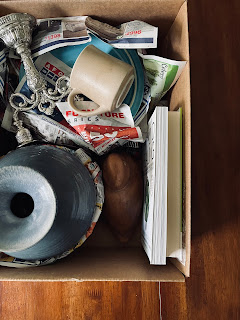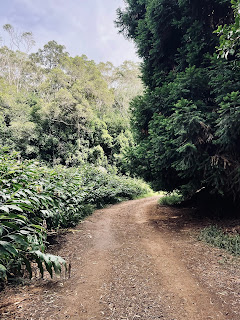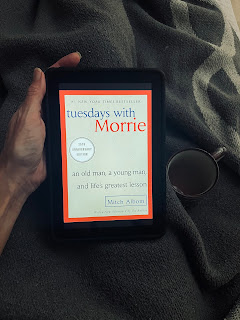But having been where they are, this might be the best way to describe it. Their stuff makes them happy, and they’re content to be surrounded by the excess of them. In essence, they don’t own their things… their things own them.
I’m still working on this concept too. It’s hard to see how much our stuff controls us. I know this (and can say this in love) because I was exactly like them a few years ago.
I give them a lot of empathy in this area because it takes time to see the truth of our habits, particularly one that doesn’t seem like a habit but something that is a part of us all. Aren’t we supposed to need things? Don’t we use all that we have? Don’t we need more to exist and have a perfectly normal life?
I used to think this. But these days, my mind has shifted to a “less is more” mentality in most areas of my life. From what I wear, what’s in my house (my part of it anyway), and what I bring in, minimalist aspects are within them all. I even have a large collection of collectible kitchenware and still call myself a minimalist.
So, how does a minimalist like me live with - and enjoy - living with non-minimalists? Is this even possible? I can tell you it is. And it starts by having control over the areas within which I can maintain my minimalism.
Here are five ways to maintain minimalism in your life even if the rest of your family isn’t on board with it… yet.
Your closet - This is probably the biggest for most minimal-loving folks and the easiest to adapt to, even if your significant other isn’t interested. My husband and I share a walk-in closet: he has half and I have half – split right down the middle. The goal of minimalism for me is to work on what’s mine. And one of the few things in our house that we don’t share is my clothing. For the last couple of years, I have pared down my closet to the right amount of core pieces that go with everything. My husband has twice as much clothing as me, but that’s okay. My side is tidy and organized, and everything hanging up or on a shelf is something I wear or have worn this past year. I have an eclectic mix of vintage and modern clothing. This part of our closet is mine and it’s exactly as I like it.
Your cosmetics (toiletries) - This is another area that only I have access to. A couple of years ago, I decided going more natural (with fewer chemicals) with my toiletries was necessary not just for a simple life but to combat my auto-immune illness. My make-up takes five minutes to put on because I only put on a few and my lotion is singular: one for my face and body. I don’t have excess cosmetics and my shampoo works as my body wash (it’s an organic and chemical-free one so why not use one for both?). It makes getting ready for the day the easiest it's ever been. From shower to finish, getting ready takes no longer than half an hour (including if I need to blow dry my hair). It’s so nice not having to use as many products. Simple, easy, clean!
Your shoes - This is where I need to improve more. I love shoes. I can pare down my closet to as little as I can, but shoes… please don’t ask me about my shoes. Regardless, as someone who has owned upward of fifty pairs (probably more, but I can't think about it now), I’ve downsized my shoes to about 28 - this includes flip-flops and hiking boots. Again, only I am wearing my shoes. And my husband and two sons all own about ten pairs of shoes or less… so this one is all on me! I’m sure there are a few more pairs I can scale down, but as always, it’s a process. Minimalism takes time not only to undertake but mentally accomplish.
Your collections - I have a huge love for vintage kitchenware. I’ve been collecting since I was a teenager, which means I’ve had decades of collecting. But, this takes up lots of room, and most of the pieces I don’t use (even though collections don’t have to be used.) So, to become the minimalist I yearn to be (free of my possessions that weigh me down) I have donated – and sold online – parts of my collections. Bit by bit, I’ve sold what I have had - because it was time. Someone else gets to enjoy them now. I still have a huge vintage Pyrex collection. But, it doesn’t have a grasp on me. I can sell it all tomorrow if I need to. It’s also the only collection I own - it’s something I enjoy using too.
Your grace (love, empathy, and tolerance) - I step one foot into my sons’ rooms and my head is reeling. They have bookshelves full of books and nicknacks, and their dressers are covered with papers, books, trinkets … things that are important to them. They have so many clothes and don’t wear half of them. Here’s the thing: they know I’m a minimalist, they know how it works and why I do it, but it’s hard for them to adopt this way of living. This is where my grace, love, and empathy come into action. They don’t have to be like me to be loved. I love them anyway. Do I want them to see the (possible) error of their ways? Of course. But, all I can do is be an example. Maybe in time, they will want to adopt minimalism. Meanwhile, I will accept their choice and continue to make my choice.
If your family hasn’t seen the beautiful truth of minimalism yet, it doesn’t mean you have to live in constant friction with them. Make minimal the areas of life you do have control over and let the other areas come to minimalism in their own time. You can also clean out drawers and closets they don’t use, even parts of the kitchen with utensils and tools you’ve let collect dust.
For a great book on minimalism, please read Joshua Becker's book The More of Less: Finding the Life You Want Under Everything You Own. I read this when it came out years ago and it kickstarted my journey into minimalism.
Little by little, minimalism can enter all parts of your home. Start with what you can work with - whether it’s your closet or a single drawer all your own - and it will give you a place to retreat to and control when the rest of the family wants nothing to do with it. Understanding that we can live with less – not more– is something we all have to learn in each of our unique ways.
Merry Christmas, everyone. ♥
-HJS













